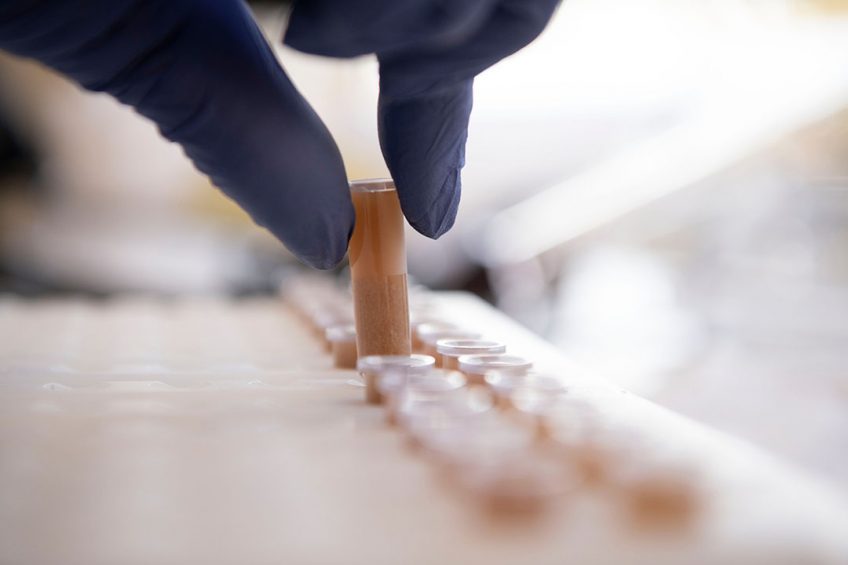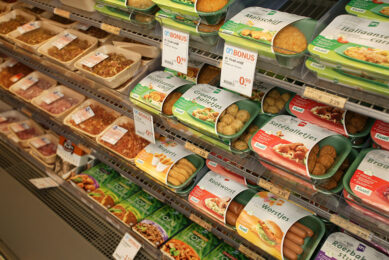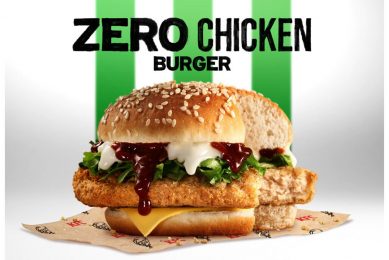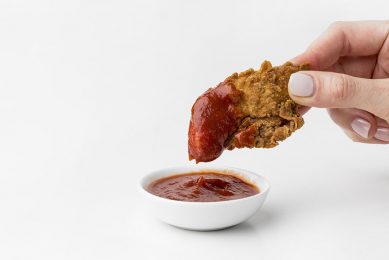Bioprinting chicken nuggets in Russia

By the end of 2020, KFC and Moscow-based 3D bioprinting solutions want to create chicken nuggets by means of bioprinting technology. The project aims to create the world’s first laboratory-produced chicken nuggets made of chicken cells and plant material.
In a statement by 3D Bioprinting Solutions research laboratory, the company said the innovative nuggets will be as close as possible in both taste and appearance to the original KFC product while being more environmentally friendly to produce than ordinary meat.
At KFC, we are closely monitoring all of the latest trends and innovations and doing our best to keep up with the times by introducing advanced technologies to our restaurant networks.”
Receiving a final product for testing is already planned for the fall of 2020 in Moscow. It is yet to be seen when the products could appear on the KFC menu. To sell it to consumers, KFC would need to get permission from Rospotrebnadzor, as Russian sanitary regulations are not allowing selling chicken meat produced, using -3D bioprinting technology.
Chicken and plant
3D Bioprinting Solutions is developing additive bioprinting technology using chicken cells and plant material, allowing it to reproduce the taste and texture of chicken meat almost without involving animals in the process. Under the agreement, KFC will provide its partner with all of the necessary ingredients, such as breading and spices, to achieve the signature KFC taste. At the moment, there are no other methods available on the market that can create such complex products from animal cells, 3D Bioprinting Solutions said.
“At KFC, we are closely monitoring all of the latest trends and innovations and doing our best to keep up with the times by introducing advanced technologies to our restaurant networks. Crafted meat products are the next step in developing our ‘restaurant of the future’ concept,” said Raisa Polyakova, General Manager of KFC Russia & CIS. “Our experiment in testing 3D bioprinting technology to create chicken products can also help address several looming global problems. We are glad to contribute to its development and are working to make it available to thousands of people in Russia and, if possible, around the world”, Polyakova added.
 Chicken buyers most open to meat alternatives
Chicken buyers most open to meat alternatives
Poultry farmers are facing increasing pressure from vegetarians and vegans, particularly among the health and environmentally-aware younger generation. Poultry World looks at the issues and the response of the poultry sector.
Same meat, no farming
According to 3D Bioprinting Solutions, the bioprinting method has several advantages. Biomeat has exactly the same microelements as the original product, excluding various additives used in traditional farming and animal husbandry, creating a cleaner final product. “3D bioprinting technologies, initially widely recognized in medicine, are nowadays gaining popularity in producing foods such as meat. In the future, the rapid development of such technologies will allow us to make 3D-printed meat products more accessible and we are hoping that the technology created as a result of our cooperation with KFC will help accelerate the launch of cell-based meat products on the market”, said Yusef Khesuani, co-founder and Managing Partner of 3D Bioprinting Solutions.
 Beheer
Beheer








 WP Admin
WP Admin  Bewerk bericht
Bewerk bericht